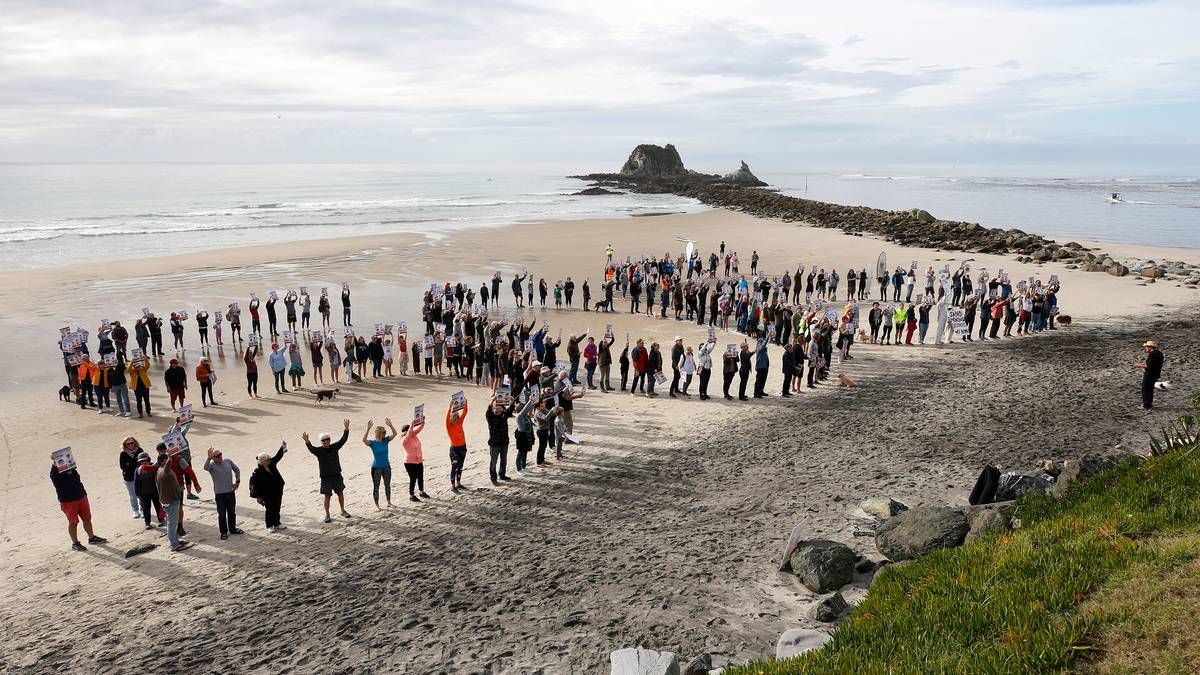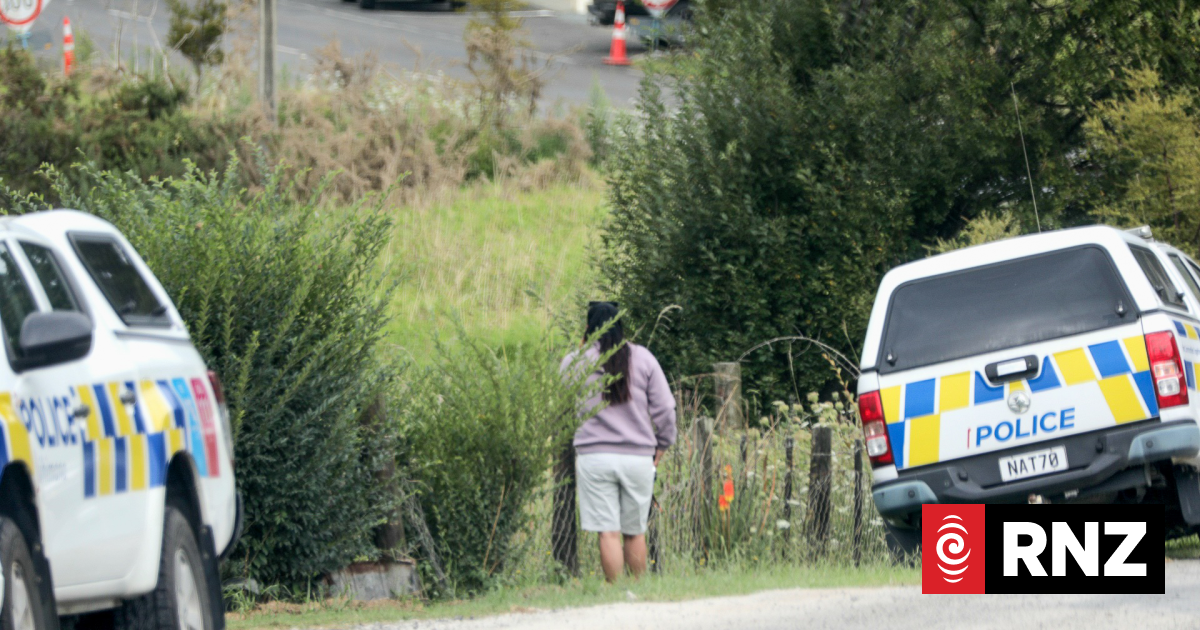A group of around 300 Save Our Sand protesters spells out S.O.S on the beach. Photo / Michael Cunningham
Hundreds of people came together to protect the “irreplaceable” sand at Pakiri in Mangawhai and strongly oppose the renewal of sand mining resource consent.
The protest comes ahead of resource consent application hearings for McCallum Bros to harvest the resource from nearby waters.
Around 300 people expressed their concern by spelling out S.O.S on the sand in front of the Mangawhai surf club on Sunday morning.
/cloudfront-ap-southeast-2.images.arcpublishing.com/nzme/FEPG4EZOEQSNCT6ITPKPPRLU3M.jpg)
Save Our Sands spokesman Ken Rayward said the event was a big success due to the high level of community passion to drive it.
“Mangawhai displayed at its best and the mayor spoke very powerfully and reiterated Kaipara council’s very strong opposition to the mining.
“The fact the mayor himself was going to be leading that presentation in the coming resource consent hearing is very important.”
Rayward said representatives from Greenpeace were also present and recognised the dangerous impact if mining was allowed to proceed.
“They (Greenpeace) also gathered momentum from a lot of parts in NZ. It was a great acknowledgment to a small community having to face up to big business and take them on to the court.”
/cloudfront-ap-southeast-2.images.arcpublishing.com/nzme/NMLVPX52RF5EWTB7Q635PG3SD4.jpg)
Rayward said SOS now had greater in-depth scientific evidence which was missing previously to strengthen their case against the McCallum Bros.
However, he said, the group was not taking anything for granted and would fight it all the way to the end.
Kaipara District Mayor Jason Smith said while the council had voted unanimously to oppose the sand mining, it was an interesting cross order with the Auckland Council who had the final say on the resource consent.
“The number of people who are extremely concerned about the sand mining in Mangawhai and Pakiri is increasing as the campaign is growing linked to the resource consent process that is under way at present.
/cloudfront-ap-southeast-2.images.arcpublishing.com/nzme/3PO5MFQKERA5I2MAVXRFCS42CY.jpg)
“KDC has voted unanimously to oppose the sand mining because it is absolutely against the interest of Mangawhai town.
“But the resource consents are linked with Auckland council and not with Northland Regional Council or Kaipara District Council.”
There were many hundreds of people who were very supportive of the effort to oppose sand mining, said Smith.
“There is a whole battle, a giant story ahead.”
The sand in Mangawhai under the spotlight was a finite source of sand and would never be replaced, said Smith.
The white Pākiri sand comes from the ancient mouth of the Waikato River that used to come out into the Pacific Ocean, but was diverted to the Tasman by a volcanic eruption, 1800 years ago.
/cloudfront-ap-southeast-2.images.arcpublishing.com/nzme/JEHMSKQT7YOCETRBLTOQWQVY3Y.jpg)
“The very essence of sustainability is to be able to do something forever, and in this case, there is a finite source of sand,” Smith said.
“When every grain of the sand is gone, it will never to replaced.
“That is very rare for any beach area. Whereas the sand on the west coast of NZ is rolling from the Tasman Sea.
“For the people of Mangawhai who have fought so hard to keep the place beautiful and safe, they are aware the sand mining is unsustainable because of the supply being unsustainable.”




